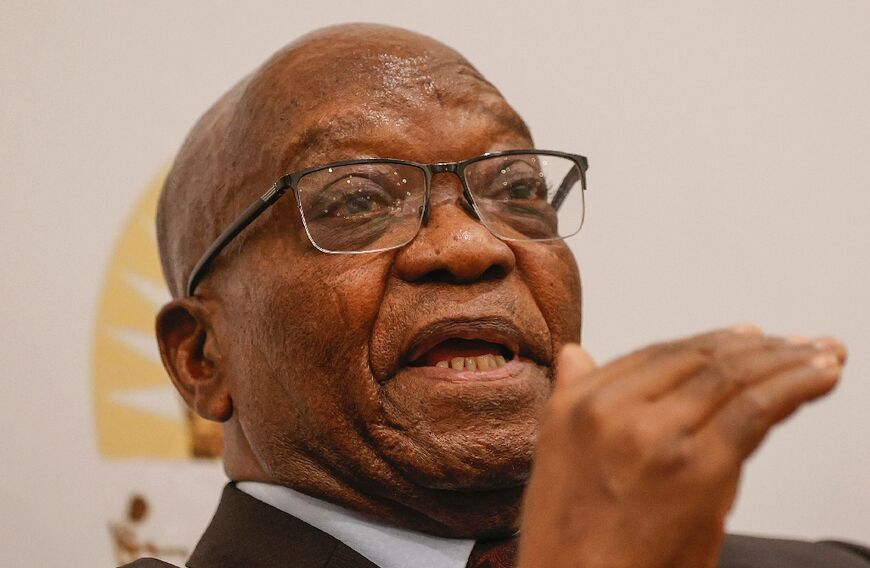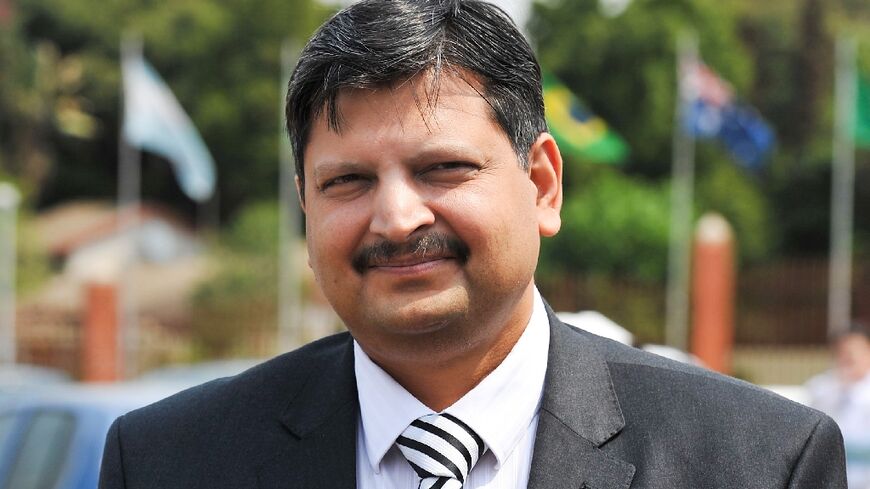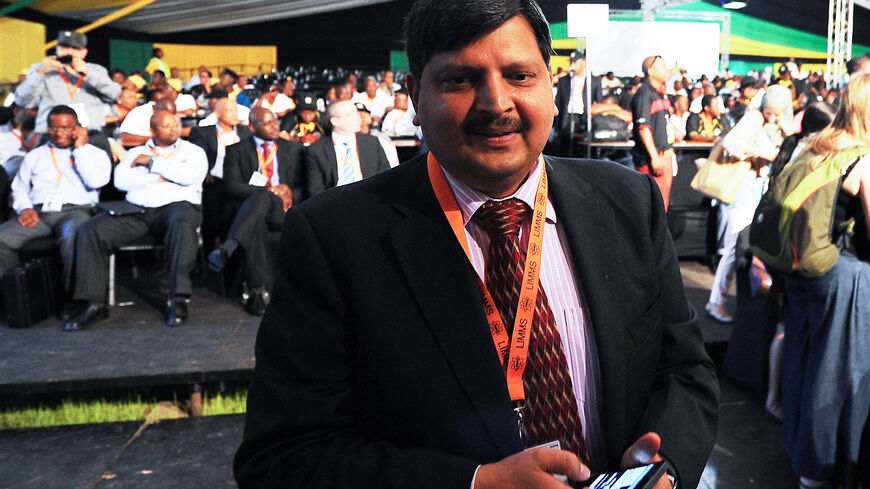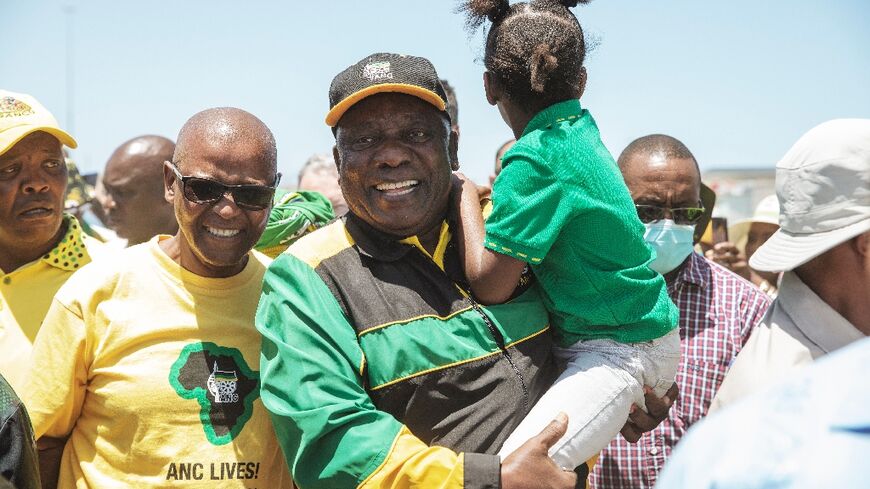S.Africa anger after UAE refuses to extradite graft-accused brothers
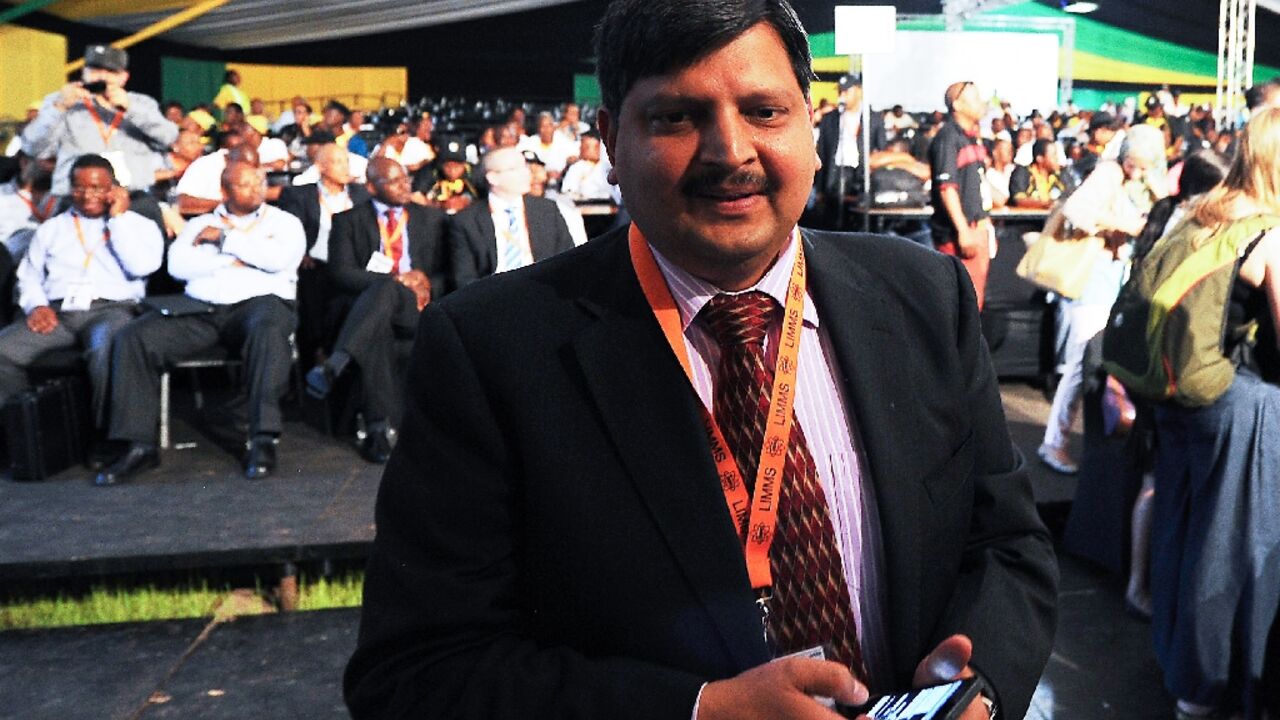
South Africa said Friday it had learnt with "shock and dismay" that the United Arab Emirates had rejected a request to extradite two brothers accused of orchestrating industrial-scale corruption.
Justice Minister Ronald Lamola bluntly accused the UAE of "non-cooperation" after being informed late Thursday of a court ruling against extraditing tycoons Atul and Rajesh Gupta.
"We learnt with shock and dismay that the extradition hearing had been concluded in the Dubai Court on the 13 February 2023 and our extradition request was unsuccessful," Lamola said in a statement.
But in the UAE, state media said there had been problems with South Africa's paperwork and the South African authorities had been briefed "at every step."
The two Guptas, along with a third brother, Ajay, built a sprawling business empire in South Africa over two decades after migrating from India.
Investigators say they colluded with former president Jacob Zuma to siphon off state assets under a system that, according to one estimate, cost several billion dollars.
They fled the country in 2018 as pressure over the scandal began to mount.
Last year, South Africa and the UAE signed an extradition treaty, and in July South Africa applied for Atul and Rajesh Gupta to be handed over after the pair were arrested in Duba.
South Africa's case centres on an alleged 25-million-rand ($1.6-million) fraud linked to an agricultural feasibility study.
Ajay Gupta has not been indicted in the case, but has been named in another embezzlement and corruption case.
- 'Non-cooperation' -
Lamola said the extradition had been denied on a technicality.
The Dubai court, he said, found that the UAE held jurisdiction on the charge of money laundering, as the crime in question was allegedly committed in the country as well as in South Africa.
As to the charge of fraud and corruption, "the court found that the arrest warrant relating to this charge was cancelled," Lamola said.
"The reasons provided for denying our request are inexplicable and fly in the face of the assurances given by Emirati authorities that our requests meet their requirements."
Court papers showed the Guptas are now citizens of the South Pacific nation of Vanuatu thanks to a "golden passports" scheme offering nationality to investors, the South African authorities said.
According to media reports this week, Atul and Rajesh Gupta were spotted in Switzerland in late March.
Lamola accused the UAE of failing to properly consult South Africa before the extradition was rejected.
Such a "level of non-cooperation" was "highly unprecedented," he said.
He said authorities had received only an Arabic summary of the judgment late Thursday and had had to work overnight to understand and analyse the document.
"That is the life we have been living with the authorities in the UAE," a frustrated Lamola told a press briefing.
"We still intend to engage our counterparts... to ensure that the decision of the court is promptly appealed," he added.
But the UAE refuted the accusation of blindsiding South Africa and said the extradition application was flawed.
The UAE's judicial authorities had briefed their South African counterparts "at every step," the official WAM news agency reported in Dubai.
"The decision to reject the extradition request follows a comprehensive and thorough legal review process that found that the request did not meet the strict standards for legal documentation."
The applications notably lacked a copy of the arrest warrant order or included an invalid one, WAM said, stressing that South Africa could "resubmit the extradition request with new and additional documentation."
- 'Billions' lost -
A marathon investigation published last year said the three brothers lay at the heart of a web of corruption under Zuma's nine-year tenure.
Paul Holden, an investigator who runs an NGO alongside a former ANC MP, has estimated that the cost of the Guptas' alleged illicit activities in South Africa could be as much as 50 billion rand, or more than $3.2 billion.
The plundering -- a phenomenon known in South Africa as state capture -- led to Zuma's downfall.
In 2018, he was forced out by the ANC and replaced by the vice president, Cyril Ramaphosa.
Last year he was given a 15-month jail term for contempt of court after refusing to testify before the investigative panel.
He is separately embroiled in an arms scandal, in which he allegedly took bribes from French defence giant Thales, which has also been charged with corruption and money laundering.
Zuma and the Guptas have denied any wrongdoing, as has Thales in the arms case.
The extradition episode is set to fuel criticism of Ramaphosa, already pilloried for his handling of the economy and a scandal involving a cash burglary at his ranch.
The opposition Democratic Alliance (DA) said it doubted whether there had been any "serious intention" to extradite the Guptas, "bearing in mind the consequences it would have ensued for so many highly placed ANC members."
